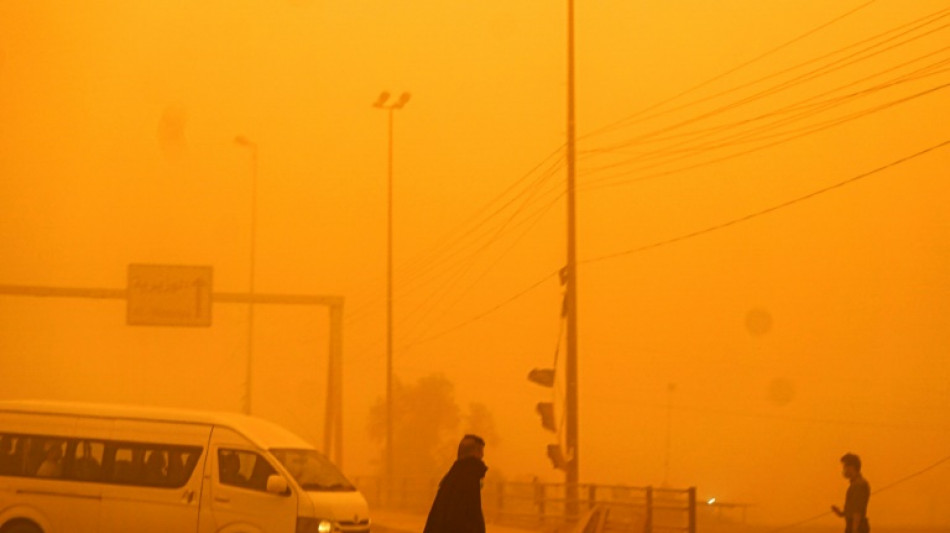
CMSC
-0.0600


Another sandstorm descended Monday on Iraq forcing the closure of airports, schools, universities and public administrations across the country, officials said.
It is the eighth duststorm since mid-April to hit Iraq, which has been battered by soil degradation, intense droughts and low rainfall linked to climate change.
The last one earlier this month led to the death of one person while 5,000 others had to be hospitalised for respiratory problems.
On Monday a thick cloud of dust enveloped the capital Baghdad in an orange glow and blanketed many other cities including the Shiite shrine city of Najaf to the south, and Sulaimaniyah, in the northern Kurdish autonomous region, AFP correspondents said.
Yellow and orange sand covered building roofs, cars and even crept into homes.
It drastically reduced visibility to just 300 metres (yards) at Baghdad airport, prompting authorities to close airspace and halt flights, state-run INA news agency reported.
Airports in Najaf and Sulaimaniyah were also closed for the day, the agency said.
Authorities in seven of Iraq's 18 provinces, including Baghdad, ordered government offices to shut.
Health units across the country remained open, however, as authorities warned that the most at risk were the elderly and people suffering from chronic respiratory diseases and heart ailments.
Schools nationwide were also shuttered and end of year exams postponed to Tuesday. Universities also delayed exams.
The latest sandstorm was expected to gradually dissipate by Monday evening, weather services said.
The Middle East has always been battered by dust and sandstorms but they have become more frequent and intense in recent years.
The trend has been associated with overuse of river water, more dams, overgrazing and deforestation.
Iraq is rich in oil and is known in Arabic as the land of the two rivers -- in reference to the legendary Tigris and Euphrates rivers.
But the supply of water has been declining for years and Iraq is classified as one of the world's five countries most vulnerable to climate change and desertification.
In April, an environment ministry official warned that Iraq could face "272 days of dust" a year over the next two decades.
tgg/hkb/it
S.Yamamoto--JT